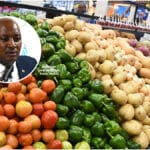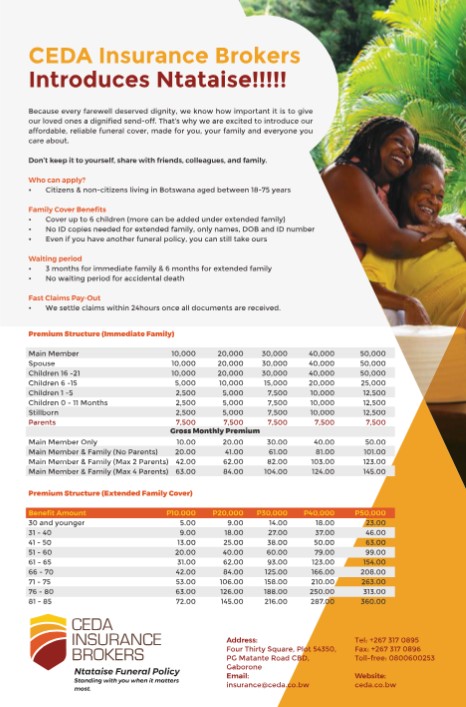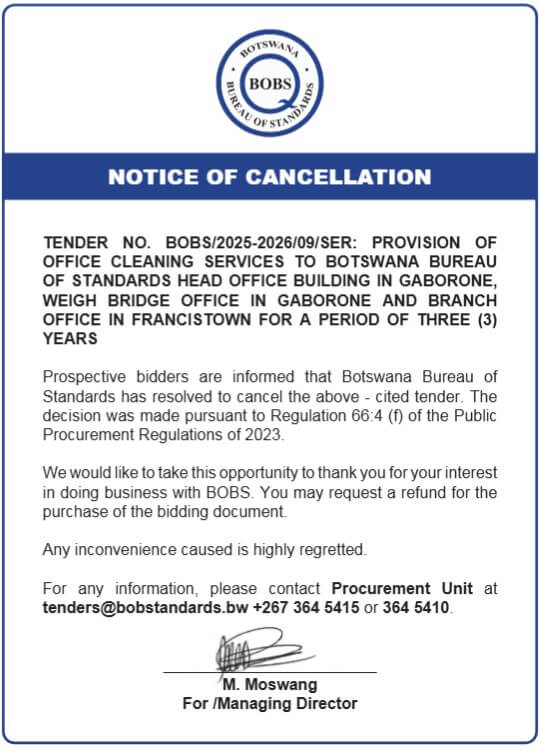VAT hiked, more taxes and levies introduced
Monday’s Budget Speech, and the announcement that Value Added Tax (VAT) will soon be increased alongside the introduction of other forms of taxes and levies, has left many scratching their heads and wondering how they are going to make ends meet.
Delivering the Budget Speech, the Finance Minister, Dr. Thapelo Matsheka, stressed the changes are part of the government’s efforts to restore the fiscal balance in the face of growing budget deficits.
While Botswana has benefitted from high revenues in the past, Matsheka noted the majority of government revenues are derived from external sources, especially mineral revenues and the Southern African Customs Union (SACU) receipts.
“Domestic revenue generation is relatively low and needs to be increased to support our goal of fiscal sustainability. This, in turn, requires both increased efficiency through improved tax administration, as well as new taxes or increased tax rates,” explained Matsheka, adding the aim was to broaden the domestic revenue base.
Thus, the government has increased VAT from 12 percent to 14 percent, with the two percent rise coming into effect from the start of the financial year – 1 April.
VAT is described as a form of tax placed on a product whenever a value is added at each stage of the supply chain, from production all the way to the point of sale.
Attempting to pour honey on the wound, Matsheka justified the move by saying Botswana has one of the lowest VAT rates in the world.
He highlighted that even after the increase, VAT in Botswana will remain amongst the lowest in the Southern African Development Community (SADC) region.
Matsheka also announced, effective 1st April, the fuel levy will go up by P1 per litre.
The Minister explained this was to compensate for the fact that VAT is not applied to fuel products in Botswana.
Currently sitting at 13.5 thebe a litre, the new levy will be 113.5 thebe a litre, meaning the public can expect a P1 rise in petrol/diesel prices.
In a sour blow to sweet-toothed citizens, it was further revealed a levy on sweetened beverages is to be introduced, at a rate of 2 thebe per gram of sugar above the content of 4g of sugar per 100ml.
As well as raising revenue, Matsheka noted this was aimed at addressing health problems, including obesity and diabetes, which have become increasingly prominent in recent years.
In welcome news for environmentalists, it was also announced a plastic levy will be brought in this year as the government moves to reduce pollution in Botswana.
“During the coming Financial Year, the necessary statutory instrument will be introduced to ensure that the plastic bag levy becomes operational,” said Matsheka.
Consumers may also find their pockets hit when purchasing second-hand imported vehicles. The government is working on the modalities of imposing a levy on such imports, with the dual objectives of raising revenue and addressing environmental concerns regarding pollution.
Summing up the feeling of many in a brief interview with Voice Money, First National Bank Botswana Quantitative Analyst, Gomolemo Bosele, said, “The impact of these taxes is likely to have an inflationary impact, eroding the purchasing power of domestic households.”
*Turn to page 6A to find out how members of the public reacted to the Budget Speech.
What is VAT in simple terms?
VAT, or Value Added Tax, is a business tax levied by the government on sales of goods and services. In other words, it’s a tax charged on products/services that people and businesses buy.
Food commodities exempt from VAT
Bread flour
Samp
Rice
Brown bread
VAT Rates in SADC
Madagascar 20%
Democratic Republic of Congo (DRC) 18%
Tanzania 18%
Mozambique 17%
Malawi 16.5%
Zambia 16%
Lesotho 15%
Eswatini 15%
South Africa 15%
Mauritius 15%
Namibia 15%
Zimbabwe 14.5%
Angola 14%















